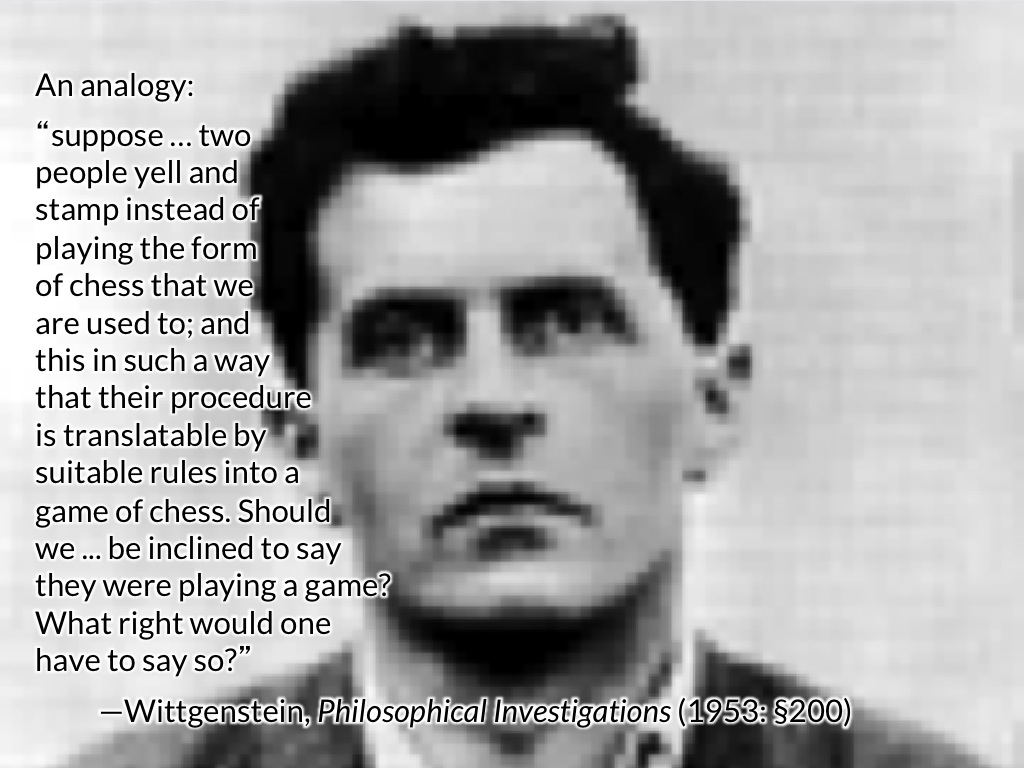Press the right key for the next slide (or swipe left)
also ...
Press the left key to go backwards (or swipe right)
Press n to toggle whether notes are shown (no equivalent if you don't have a keyboard)
Press m or double tap to see a menu of slides
Does being able to think depend on being able to communicate with language?
- If someone can think, she must be capable of having a false belief.
- To be capable of having a false belief it is necessary to understand the possibility of false belief.
- Understanding the possibility of false belief entails being able to communicate by language.
Conclusion:
If someone can think, she can communicate with language.
‘We, observing and describing … a creature …, say that it discriminates certain shapes, objects, colors, and so forth, by which we mean that it reacts in ways we find similar to shapes, objects, and colors which we find similar.
But we would be making a mistake if we were to assume that because the creature discriminates and reacts in much the way we do, that it has the corresponding concepts.
The difference, as I keep emphasizing, lies in the fact that we, unlike the creature I am describing, can, from our point of view, make mistakes in classification.’
Davidson (2001: 11)

‘We, observing and describing … a creature …, say that it discriminates certain shapes, objects, colors, and so forth, by which we mean that it reacts in ways we find similar to shapes, objects, and colors which we find similar.
But we would be making a mistake if we were to assume that because the creature discriminates and reacts in much the way we do, that it has the corresponding concepts.
The difference, as I keep emphasizing, lies in the fact that we, unlike the creature I am describing, can, from our point of view, make mistakes in classification.’
Davidson (2001: 11)
- If someone can think, she must be capable of having a false belief.
- To be capable of having a false belief it is necessary to understand the possibility of false belief.
- Understanding the possibility of false belief entails being able to communicate by language.
Conclusion:
If someone can think, she can communicate with language.
‘we grasp the concept of truth only when we can communicate the contents---the propositional contents---of the shared experience, and this requires language’
Davidson 1997, p. 27
‘the process of language acquisition [is] coming to know the meanings of words, where at a given stage the learner’s conception is an hypothesis about the meaning’
Higginbotham 1998, p. 153
two directions
-
If someone can think, she can communicate with language.
- Acquiring language involves thinking from the start.
If 1, then not 2.
If 2, then not 1.